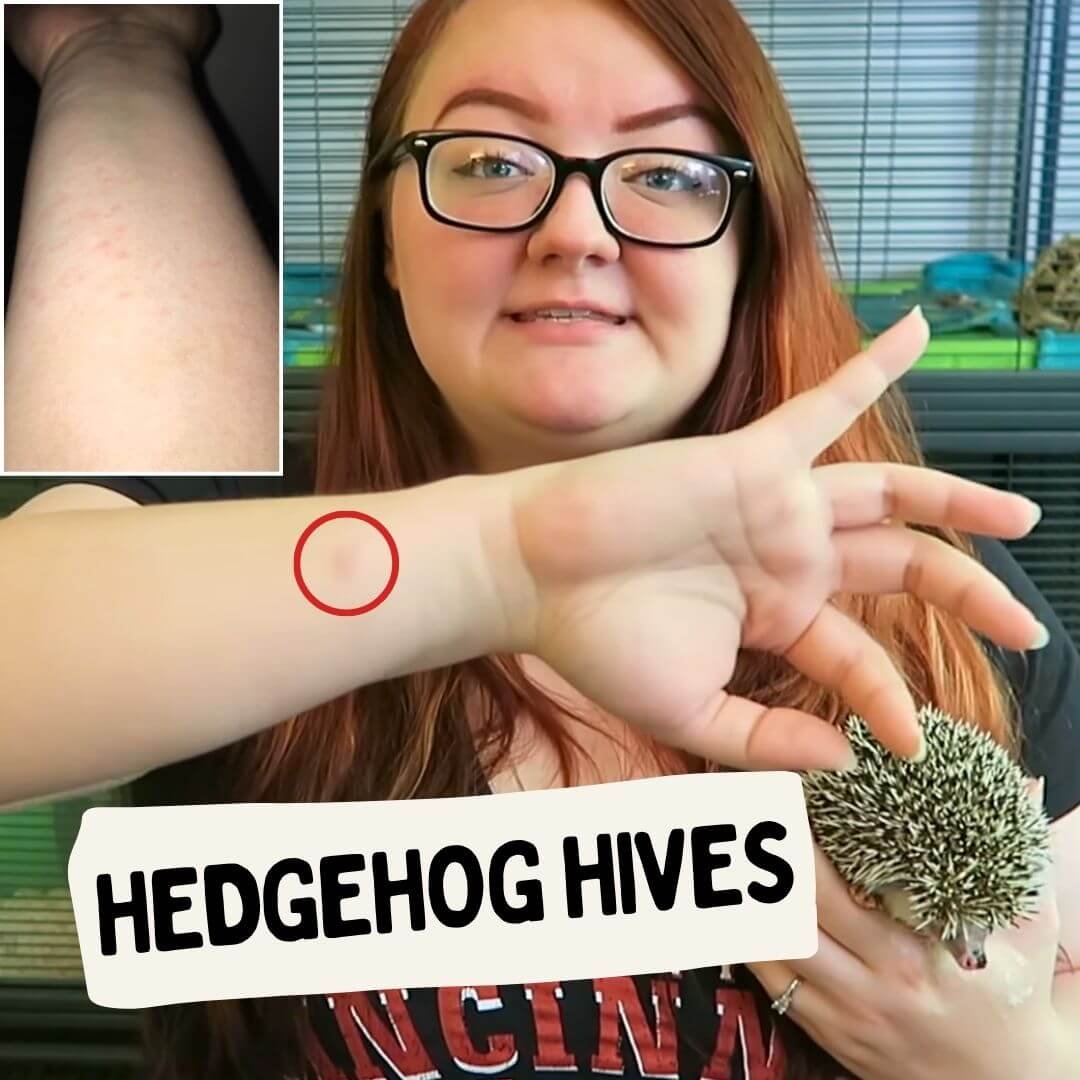Are hedgehogs hypoallergic? A quick Google search on the matter will produce many conflicting results. Some voices believe there’s always the possibility of getting an allergic reaction from the hedgehog’s bedding, excrement, or the hedgehog itself.
Hedgehog hives are the most common allergic reaction for hedgehog owners, especially people allergic to other furred animals. This begs the question, is your hedgehog giving you hives, or do they occur due to some other interaction?
In this article, we’ll dive into the intricacies of Heggie hives, evaluating everything from what they are, what causes them, and how to prevent them from happening.
What Are Hedgehog Hives?
Hedgehog hives typically present themselves as an uncomfortable, itchy sensation called urticaria. The sensation is mainly localized to the point of contact between your skin and the hedgehog’s spikes. Most people get Heggie hives shortly after handling a hedgehog, but some reactions may take much longer to present themselves.
Fortunately, Heggie hives don’t typically last that long and will naturally dissipate within 24 hours in most cases.
Why Am I Getting Hedgehog Hives?
If you’re allergic to all pet dander, the chances are you’re also allergic to hedgehogs. However, this is not always the case, as some people who haven’t had previous allergic reactions to other furred animals may also get affected.
The overwhelming discrepancy in the likelihood of getting hedgehog hives has given rise to many theories, with several experts and hedgehog owners trying to figure out what causes the allergic reaction when pricked by quills or after contact with Heggie dander.
Some of the most notable theories about the cause of hedgehog hives include:
Different Quill Types:
Despite belonging to the same species, eating the same food, and growing in the same environment, hedgehogs develop different types of quills; it’s a matter of genetics. Some hedgehogs have suppled, short quills, while others portray firmer and larger quills.
The latter presents the highest chance of pricking your skin, causing some people to believe that hedgehogs with larger quills carry the highest possibility of causing hives. However, this is not necessarily true, as younger, smaller hedgehogs also cause hives.
Stress Oils in Quills:
Hedgehogs, like all other animals, release stress hormones. Some hormones, including adrenaline, cortisol, and others, are on the quills. When these quills prick your skin, the stress oils are introduced into that area of the skin, resulting in an allergic reaction.
There’s also the possibility of the quills pocking allergens directly into your skin. Think of it this way: like all mammals, hedgehogs have dander. When your Heggie’s quills scratch or prick your skin, they introduce the allergens directly into your skin, resulting in a more pronounced reaction, especially if you’re already allergic to dander.
How Can I Protect Myself from Getting Hedgehog Hives?
They say prevention is better than cure, and this couldn’t be truer for hedgehog hives. While you may be able to get rid of hedgehog hives by washing the affected area, cooling it down with an icepack, or applying an anti-itching cream, preventing them from happening in the first place is the only sure way to protect yourself.
Some of the most effective ways to prevent hedgehog hives include:
Taking Anti-Histamines
If you get hives every time you handle your hedgehog, taking anti-histamines at least thirty minutes before handling your Heggie might help. You should first visit your doctor’s office for an allergy test to pinpoint your allergy. This way, you’ll be better able to tell if you’re allergic to the hedgehog, its bedding, litter, or some other contributing factor.
Reducing Fecal Matter on Your Hedgehog:
Hedgehogs can be pretty nasty, especially if they’re not litter-trained. A night in the cage is enough to have them rolling in their poop, which may have detrimental effects on your health and cause the hedgehog to develop infections.
Therefore, you should try litter training your hedgehog and cleaning it at least once a day or a few days a week. Cleaning a hedgehog is pretty simple. A gentle baby wash or regular foot baths can go a long way in ensuring that both you and your prickly friend are safe.
Final Thoughts:
Nothing hurts quite like having to rehome your hedgehog after developing a bond with it. Unfortunately, that typically happens when you can’t cope with the allergies. On the bright side, hedgehog hives are easily preventable and quite rare. That’s why taking an allergy test is always advisable before deciding on more drastic measures.


